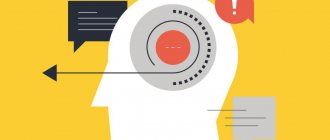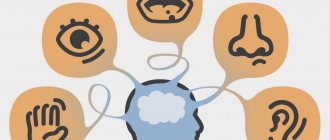Will determines the ability to achieve success: it reveals how easily one gets down to work, resists temptations, defeats procrastination and laziness, gets rid of irritants, and puts long-term results above desires for short-term pleasures.
Will in psychology, according to Wikipedia, is a person’s ability to make decisions based on the thought process and direct their thoughts and actions in accordance with the decision made. Simply put, if you made a decision to do something, but no action followed, it means that the decision was not made, and the will was suppressed by fear, stress or laziness.
Modern psychologists suggest that weakness of will may be caused by one or more of the following reasons:
- lack of suitable goals;
- indecision caused by shifting attention from one course of action to another;
- inability to choose between alternative courses of action;
- inability to make a firm decision;
- inability to break bad habits;
- inability to resist desires, impulses and urges.
Classification
Modern psychology divides human will into three types:
- Spiritual or free. Developed among believers. They independently decide to limit themselves from worldly goods and lead an ascetic lifestyle.
- Natural. Inherent in any individual, but developed to varying degrees. Helps to overcome various difficulties on the way to the intended goal, gives motivation for action.
- Forced. It occurs when a person acts depending on the imposed opinions of other people.
The last type of will is control, which is often used by leaders, teachers, and educators.
Signs of will
Psychologists, figuring out and defining what human will is, have formulated three characteristics inherent in this mental trait. The first is the awareness of one's own freedom. A person understands that he is free to do any action. He realizes that there is no predetermination in principle, only he himself determines what behavioral reactions will be.
The sign of will is determinacy of action. This must be objective. Its presence is mandatory. The sign must be present in any action, even if from the outside it seems completely free.
At the same time, volitional behavior is a holistic phenomenon that affects all personal aspects. A person expresses himself through such mental characteristics clearly, completely. Regulation of behavior through will is considered the highest level of mental control.
Theories, forms and levels
Volitional actions have a complex structure and consist of several points:
- Acceptance of the goal, awareness of the possibilities for achieving it. A person thinks about whether he needs to spend time on what he has planned or whether it is better to use his energy on other things.
- Assessing one’s own capabilities and resources to achieve the required result.
- The final choice of method to achieve the plan. This is the most difficult stage at which the volitional qualities of an individual are most manifested.
- Decision-making.
The last stage is the implementation of the plan.
What you need to know about will
Lack of will is the highest barrier that prevents a person from changing. The problem is that it needs to be used on a daily basis, not every now and then to create a good habit or break a bad one. All our serious goals and plans collapse precisely because of our inability to control our will.
The concept of delayed gratification is closely related to will. In simple terms, it is the ability to focus on a long-term goal so as not to notice instant gratification that can interfere with plans. A week of intense training at the gym won't matter if we have a wild weekend of eating nothing but pizza and drinking.
Will is a limited resource. If we try to change, for example, stop acting impulsively, then by the evening we may experience depression and frustration. This threatens to return to an old habit. However, two points should be taken into account. First: the will can be trained - and thus we will be able to exercise it much longer during the day. Second: willpower can be wasted if you do not do what you need.
Since will is a limited resource, you need to plan your day in such a way as not to waste it. For example, avoiding places that may trigger a bad habit.
A high level of willpower almost always means high self-esteem (after all, we have something to be proud of), the ability to resist temptations in the form of alcohol, cigarettes and overeating, and improved mental and physical health.
Depleted willpower makes a person impulsive. This means that if you feel that your will is at zero, you need to do everything possible to remove temptations out of sight.
If you are convinced of the exceptional importance of developing the will, let's see exactly how this can be done. Remember that you have a long journey ahead, perhaps life-long.
1
Develop moral qualities
Researcher Kurt Gray, a doctorate in psychology at Harvard, explains this effect as a self-fulfilling prophecy: “People around them consider highly moral people to be more strong-willed and disciplined, able to endure discomfort without losing their heads.”
The researcher is confident that Gandhi or Mother Teresa were most likely not born strong-willed people, but became such by trying to help others. He introduces the concept of “moral transformation” because he suggests that moral actions can transform people from being lazy and procrastinating to strong-willed.
2
Don't waste your will
If you try really hard, you can completely exhaust your will by noon, which will have a catastrophic effect on the rest of the day and those important decisions that you will never be able to make.
For example, you set a goal to change your character, as Franklin did: allocate one or two weeks to one quality. It's a long marathon, so there's a lot to plan for.
Make not very important decisions in advance, which usually “suck” your energy. Create a menu for the coming months and stick to it. Buy the same shirts, trousers and shoes so as not to waste mental resources constantly thinking about what to wear and wear. Here and now you need to make only those decisions that concern your character. Take care of the rest in advance.
The same tips apply to other areas of life: losing weight, getting rid of bad habits, achieving the Advanced level in learning English and much more. Make all the non-important decisions in advance and focus only on the most important ones. Don't waste your will.
3
Have a self-reflection session
For this you will need a diary. Write down all the actions that you perform unconsciously (they have become habitual), but which you want to get rid of. For example:
- While working, I am constantly distracted by news sites.
- While reading, I like to be distracted by my phone.
- During a conversation, I focus on what I want to say, and not on the words of the interlocutor.
If you make a list of at least ten points, this can already be called a good self-reflection session. Now choose your two most destructive habits.
Write down what sequential actions these unwanted habits consist of. Actions should also be understood as thoughts and emotions associated with them. For example, if you tend not to listen when you're talking to someone, notice what thoughts or beliefs pop into your head. Probably, they are the ones that prevent you from concentrating on productive dialogue. Examine the nature of these thoughts.
Think about how you can stop this behavior. Remember that you can be conscious in every action you take. It's about habit, the main thing is to recognize the sequence of steps.
Over the next month, take full control of these two habits.
4
Stop for three seconds
Our life is a kilometer-long chain of habits. Some of them help, others hinder.
Throughout the day, stop in the middle of any activity (unless you're driving, of course) and think about what stage of which habit you are currently in. If we are talking about consuming bad food, then even pleasant thoughts about Coca-Cola are already part of the habit. Think for three seconds: what will this thought lead to? Of course, to the hype: “without cola I will be an unhappy person, but with cola I will be the happiest person on the planet.” Then go and buy it. Remember further: after you drank this soda, how do you feel? And in half an hour? It can be revealed that in fact you were deceiving yourself, becoming a victim of advertising and habit.
Try to be aware of yourself for three seconds as often as possible throughout the day. Using this method, you can get rid of the irresistible desire to criticize, get angry and be offended. Once “three seconds” becomes a habit, you will no longer exhaust your willpower with this exercise (it will begin to be performed automatically) and you will be able to change, motivate yourself to work, or stop unwanted actions much faster and more effectively.
We wish you good luck!
Did you like the article? Join our communities on social networks or our Telegram channel and don’t miss the release of new useful materials: TelegramVKontakteFacebook
We also recommend reading:
- Storytelling
- Spheres of personality
- Mental processes: types and brief description
- All about habits +Marathon!
- Strategy for overcoming bad habits
- Formation of useful habits
- Halperin's theory of mental action
- Volitional personality traits
- Overcoming Negative Behavior
- How to review your progress over the past six months
- What is the implementation of intentions
Key words:1Psychoregulation, 4Psychoregulation
Violations
Types of violation of will:
- Hypobulia - in this state, volitional activity decreases. This disorder is typical for lazy, slow people who find it difficult to decide to do something outside their comfort zone.
- Abulia - lack of will, weakening of will, indecision. The individual is afraid to make decisions on his own, does not take the initiative in a group of other people, and tries to be in the background.
- Hyperbulia is an unhealthy activity. It appears in people with manic tendencies. They take on many things at once and never finish anything.
If violations of the will are detected, the person needs to be provided with appropriate psychological assistance.
Basic functions of the will
Finished works on a similar topic
Coursework Types of mental processes: will 450 ₽ Abstract Types of mental processes: will 250 ₽ Test work Types of mental processes: will 210 ₽
Receive completed work or specialist advice on your educational project Find out the cost
Will as a mental process performs four main functions. Let's look at them in more detail:
- The first function is the motivating and guiding function, which is aimed at achieving the goal set by a person in the process of overcoming difficulties. Volitional activity in the process of implementing this function is characterized by supra-situationalism, which is expressed by going beyond the limits of the initial goals and requirements of the current situation.
- The second function - which finds its manifestation in a person’s restraint of any unwanted activity, motives and actions that do not correspond to the individual’s worldview, ideals and beliefs.
- The third function of the will is the regulatory function, which is expressed in the conscious and deliberate regulation of ongoing actions, mental processes and behavioral reactions.
- The fourth function is developmental, characterized by the fact that the process of volitional regulation is aimed at improving the individual’s behavior and activities, at changing and developing his own personality.
Psychic phenomenon
Experts in the field of philosophy and psychology, trying to determine what human will is, proposed calling it a unique phenomenon of a person regulating his own activities. In many respects, it is precisely due to this aspect that a vector orientation of consciousness and its states towards an indefinite goal is possible. Will allows you to concentrate your efforts in order to achieve what you want. A characteristic feature of will is the impossibility of reducing a phenomenon to a specific objective aspect. It cannot be called pure extra-practical consciousness. Will represents the connection between an action, an object, an object, an impulse, a need.
The study of the will and human activity allows us to say with confidence that this mental function presupposes objectification by the subject and legitimation of desire, its selection into a goal. To some extent, will is the result of reflective reasoning about a person’s needs, and at the same time it is a predictive analysis of what may result from an action. Will is a combination of desire and a sense of obligation, combined with the concentration of efforts that must be made to implement what is formulated. Will at the same time is the ability of a person to realize the dominant goal, distinguish it from all others and abandon alternatives that impede the achievement of the goal. The core of the act of will is awareness of the value of the goal and the significance of its implementation for the person. Psychologists point out that will is always associated with a person’s ability to assess the correspondence between the formulated goal and the internal scale of values.











